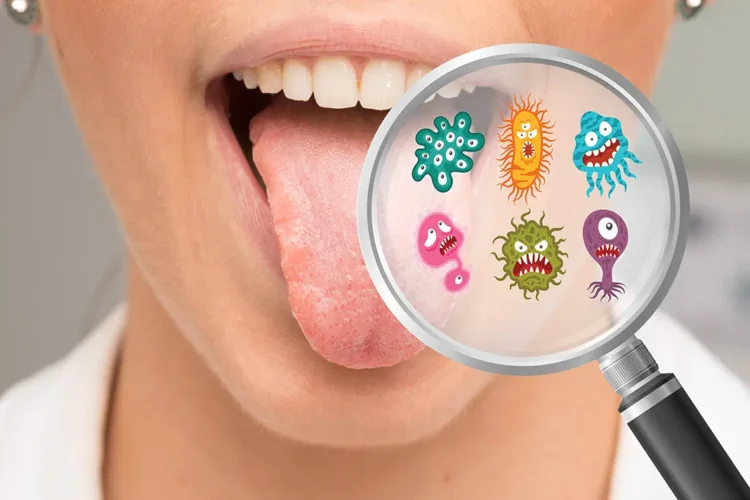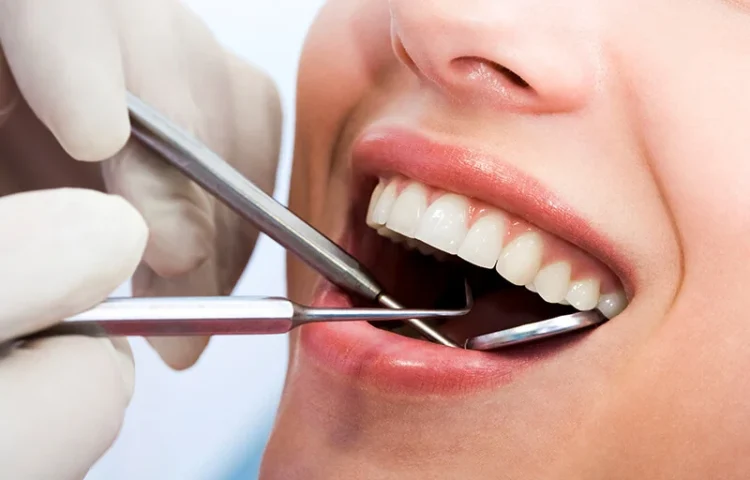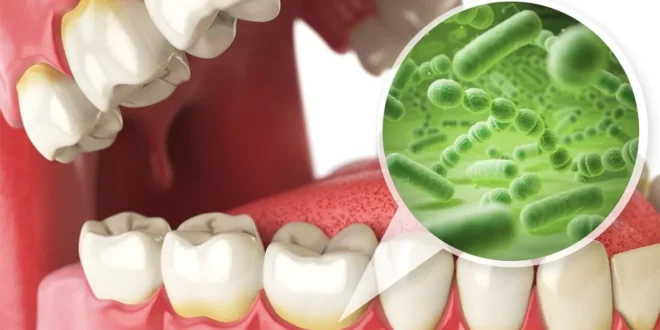The mouth is home to numerous different types of bacteria, which can vary depending on the individual’s oral hygiene habits. While some bacteria are beneficial, others can lead to dental issues such as cavities and gum disease. Understanding the various types of bacteria present in the mouth, their functions, and how to keep them balanced is important for overall oral health.
One of the mouth’s most abundant types of bacteria is Streptococcus mutans, which breaks down carbohydrates and produces acid that damages teeth enamel. Reducing the number of these bacteria can help reduce cavities, but it must be done carefully to maintain the overall microbial balance. If cavities have already spread throughout your teeth, you can have them filled by your dentist for further protection or get dental implants to replace missing teeth if the damage is extensive.
Types of Bacteria in the Mouth

Streptococcus Mutans
This is one of the most common types of bacteria found in the mouth. It breaks down carbohydrates and produces acid that damages teeth enamel, leading to cavities. Streptococcus mutans is usually harmless, but it can become dangerous if too much accumulates and leads to plaque formation.
Actinomyces
Actinomyces are Gram-positive bacteria that form a biofilm on the teeth. They feed on decaying food particles and protect the teeth from further damage. However, high levels of Actinomyces can lead to the formation of cavities and gum disease.
Lactobacillus
Lactobacillus is a beneficial type of bacteria that helps break down carbohydrates and produce lactic acid, which keeps pH levels balanced in the mouth. This helps to prevent tooth decay and maintain healthy gums.

Veillonella
Veillonella is another beneficial bacteria that helps break down carbohydrates and produce lactic acid, which helps keep the mouth’s pH levels balanced. It also helps protect against cavities and gum disease.
Fusobacteria
Fusobacteria is Gram-negative bacteria that inhabit the oral cavity. They can cause cavities and periodontal disease if they accumulate in high amounts, but they may also help to protect against other types of bacterial infections.
Porphyromonas Gingivalis
This type of bacteria is associated with periodontal disease and can cause inflammation in the gums. It is usually found in individuals with poor oral hygiene individuals, as it feeds on trapped food and debris that accumulates between the teeth and gums.
Keeping Bacteria Levels Balanced

The key to maintaining oral health is balancing your mouth’s bacteria. This can be done by brushing and flossing your teeth twice a day, using an antiseptic mouthwash, avoiding sugary and starchy foods, and visiting the dentist for regular checkups. Keeping your oral microbiome healthy will help protect you from cavities and gum disease.
The balance of bacteria in the mouth plays an essential role in oral health. Maintaining a healthy balance of bacteria can help protect against cavities and gum disease and keep your mouth healthy. It is essential to understand the various types of bacteria present in the mouth, their functions, and how to keep them balanced for optimal oral hygiene.
Ways to Improve Your Oral Health
There are many ways to improve your oral health. Some of the most common include:
- Washing your mouth and teeth regularly with warm water and toothpaste that contains fluoride or another form of the cleaning agent.
- Regular checkups with your dentist to ensure that all of your dental work is up to date and that any needed repairs or replacements have been done.
- Avoid tobacco smoke and other sources of harmful chemicals in your mouth. These can cause gum disease, tooth decay, and other oral health problems.
- Eating a balanced diet that includes plenty of fruits and vegetables, along with healthy protein and dairy products. This will help keep your gums strong and minimize the risk of developing tooth decay or other oral health problems.
The Benefits of Having a Healthy Mouth

1. Improved Oral Health
A healthy mouth can lead to improved oral health. Good oral hygiene practices – including brushing and flossing – help remove plaque and bacteria that can cause tooth decay, gum disease, and other oral problems.
2. Better Speech and Hearing
Good oral hygiene also helps protect your speech and hearing. Gum disease can lead to tooth loss, which may in turn affect your speech. And cavities can cause hearing damage if they become large enough.
3. Strong Teeth and Jaws
A healthy mouth is the key to strong teeth and jaws. Good dental hygiene – including regular brushing and flossing – helps keep your teeth clean and free from plaque build-up, which can damage your enamel surface. A healthy jaw – which includes a well-functioning chewing mechanism – helps keep your head mobile as you age, reducing the risk of falling injuries or diseases of the neck or spine.
4. Reduced Risk of Gum Disease
Gum disease causes major problems for both men and women! Gingivitis (inflammation of the gums) is one common type of gum disease. If left untreated it will progress until you have full-blown periodontal (gum) disease, in which the gums recede below the gum line and support no teeth. This can lead to tooth loss, as well as an increased risk of other oral health problems such as cavities, bad breath, and food allergies. Periodontal disease is the most common type of oral health problem in adults aged 25 to 44 years old. It affects nearly half of all Americans over the age of 50 years.
In Conclusion
These bacteria exist in everyone’s mouth, but good oral hygiene is key to maintaining a healthy balance. Regular dental visits are also important for monitoring changes in the oral microbiome. Keeping your oral microbiome healthy will help protect you from cavities and gum disease, so it’s worth taking the extra effort to maintain your oral hygiene.
 Hi Boox Popular Magazine 2024
Hi Boox Popular Magazine 2024



